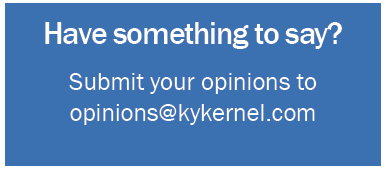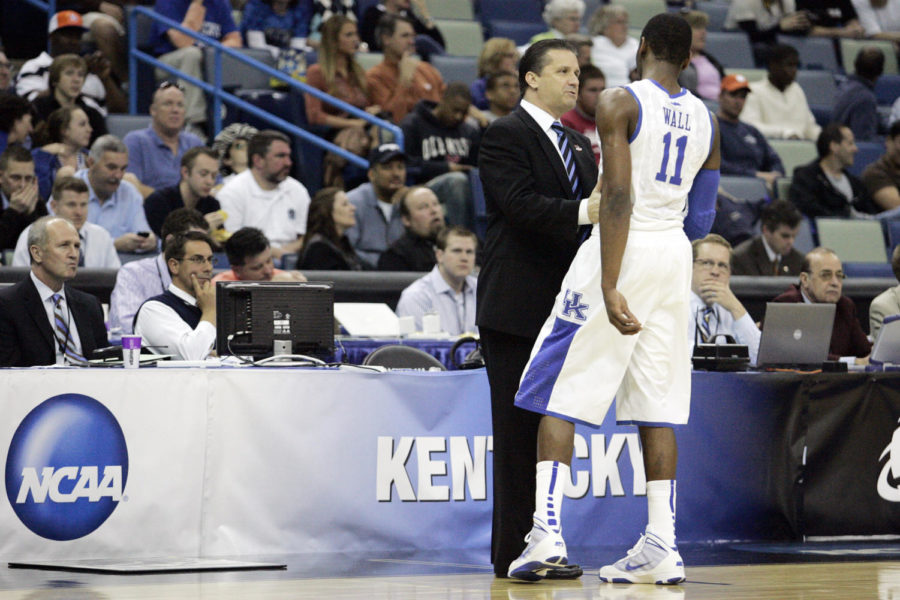Letter to the editor: Hate speech on campus, however deplorable, is and should be protected by Constitution

Letter to the editor box
March 31, 2016
False promises, assaulting free speech and expression, and a cowards way out — this is what I cannot help but to reflect when I assess the recent actions in attempt to fix the diversity crisis we have in our community. There is a sincere plea for honesty. Candidly, we are not being too authentic about the proposed solutions concerning the Biased Incident Response Team (BIRT) and the proposal to redress certain speech.
The proposal for the BIRT of 2016 is in response to hateful and offensive speech made towards black and Muslim students on campus via social media, particularly Facebook and Yik Yak, and the series of ‘hate preachers’ that frequent our campus. The idea is to have a centralized mechanism for reporting such incidences, disseminate the actions or speech to determine what can be done, and then punish under the Student Code of Conduct’s loose and ambiguous definition of harassment.
There is no objection that there should be a centralized reporting system for students to report incidences of harassment and hateful actions to prevent frantic students rushing different offices to be told “not my department.” My quibble lies in the projected power and abilities of BIRT that is misguiding students to believe they harbor power outside their legal abilities. Overzealous university employees have raised a banner to misguidedly say that certain federal government agencies — particularly Office of Civil Rights (OCR)— have expanded the definition of harassment to include anything that constitutes a “hostile environment.”
This is understandable due to inconsistencies of OCR’s assessments. Nevertheless, time and time again OCR has ran from such usage (2015 testimony to the United State House Judiciary Committee) and continuously told by Federal Courts that this is unacceptable usage (2013 University of Minnesota USC-System and a Virginia U.S District Court as of two weeks ago).
The threshold for harassment is defined by the United States Supreme Court to be any “recipient (who) has actual knowledge, and that harassment is (consistently) so severe, pervasive, and objectively offensive that it can be said to deprive the victims of access to the educational opportunities or benefits provided by the school.” Davis vs. Monroe County, 1999. A hostile environment is not enough to constitute university action for certain speech, regardless of how offensive and degrading, without hitting the threshold of a First Amendment challenge.
There are exceptions to the First Amendment such as acts that incite riots and fighting words. It is seductive to say hateful speech can incite fights or riots, but the courts have consistently held that until it happens or one-time incidences do not hit the threshold for a First Amendment exception. Generally in the United States, hate speech is protected speech under the First Amendment. The times that we do punish hateful speech is when the speech crosses the threshold of harassment as defined in Davis.
However, we punish the speech for being harassment, not for being hateful. The horrible incidences that occurred via social media was — and will always be — protected speech that cannot be punished by any public institution. Some institutions, such as Brown University, do punish such speech. But these are private institutions that are not strictly bound by the United States Constitution. The U.S. Constitution gives UK the privilege to exist and its law does not stop at the schoolhouse gates. This is a set perimeter that we must operate within to obtain any real solution.
I warn my fellows not to be lead by false prophets. Again, we are being set up in intention to being silenced through the system. This is unacceptable. Censorship is not the answer and legally can never be the answer. If continued down this path, a university kangaroo court of sophists that have no authority to fulfill their promises will turn a group of survivors of oppression into helpless victims. The focus should be on the proposed diversity course as the most sensible and realistic solution to combat such offensive behavior, which was haphazardly tossed aside during the Call To Action by attending administrators. We must question the legitimacy of these solutions because we need real solutions I applaud the bravery of the UK Call To Action. I respectfully disagree with current usage of BIRT and sincerely warn all parties not to fall for hollow promises that will hurt us in the end.
This letter was submitted by Michael Frazier, a philosophy and political science junior.





























































































































































